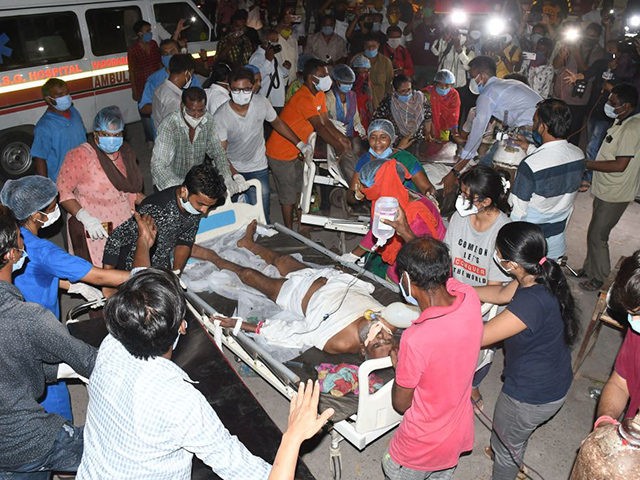Former Commissioner of the Food and Drug Administration, Scott Gottlieb, said Sunday on CBS’s Face the Nation that a new coronavirus strain, called the Delta variant, first found in India, is likely to become a source of infections this fall.
“Right now, in the United States, it’s about 10% of infections. It’s doubling every two weeks,” Gottlieb said. “That doesn’t mean that we’re going to see a sharp uptick in infections, but it does mean that this is going to take over. And I think the risk is really to the fall that this could spike a new epidemic heading into the fall.”
But Gottlieb also said vaccines developed by Moderna and Pfizer/BioNTech seem to be effective in fighting the variant.
“The mRNA vaccine seems to be highly effective, two doses of that vaccine against this variant. The viral vector vaccines from J&J and AstraZeneca also appear to be effective, about 60% effective. The mRNA vaccines are about 88% effective,” he said. “So we have the tools to control this and defeat it. We just need to use those tools.”
Gottlieb said those who are unvaccinated against the coronavirus have the highest risk of becoming infected with the new variant.
“I think in parts of the country where you have less vaccination, particularly in parts of the South, where you have some cities where vaccination rates are low, there’s a risk that you could see outbreaks with this new variant,” he said.
Meanwhile, a poll released June 7 indicated 78 percent of those unwilling to get vaccinated are unlikely to change their minds. Among those not planning to be vaccinated, 51 percent said they are “not likely at all” to change their minds and get vaccinated.
Another 19 percent said “they are somewhat likely to change their mind and get vaccinated — equivalent to five percent of all U.S. adults.”
Half of Americans aged 12 and older are now fully vaccinated, according to Tuesday’s data from the Centers for Disease Control and Prevention.

COMMENTS
Please let us know if you're having issues with commenting.